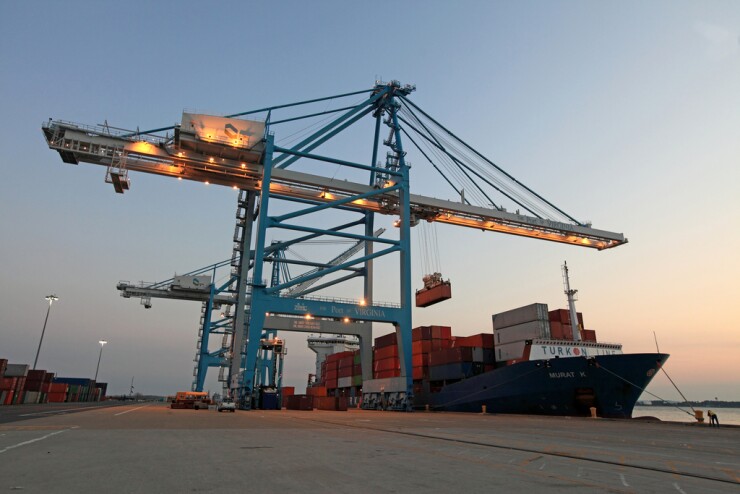The end of a brief strike by longshoremen at East and Gulf Coast ports eases immediate credit concerns for the ports, although the lynchpin of the agreement, a 62% salary increase, may nibble away at the bottom lines for some ports over the long term.
The strike by the International Longshoremen's Association representing 45,000 workers against the United States Maritime Alliance that affected work at 36 ports ended late Thursday, less than three days after it began. The settlement promises 62% dockworker pay increases — up from an initial 50% offer and below the union's 77% demand — and extends the existing contract through Jan. 15 to provide time to negotiate the new contract.
Even before the strike was settled, ratings analysts and investors expected little immediate credit impact on ports, which enjoy strong financial and market positions. Ports have billions of revenue bonds outstanding — Fitch Ratings estimates its rated port debt at $30 to $32 billion — that generally enjoy ratings in the A category or higher.
As of 2023, "U.S. port operators had the strongest median debt service coverage of any transportation infrastructure asset class," S&P Global Ratings noted in an Oct. 2 report. Their median debt service coverage is 2.8 times, with more than two years of unrestricted days' cash on hand, S&P said.

While "landlord" ports lease their facilities to terminal operators that cover dockworker salaries, some of the larger, so-called "operating ports," directly employ workers. They include some of the largest ports, like the Port Authority of New York and New Jersey and the Port of Virginia.
Those ports may face some erosion to their margins over the long term, said S&P analyst Kurt Forsgren in an interview.
"To the extent these ports have increased costs related to labor that they can't recover through revenues, it will have, over time, the impact of diminishing margins," Forsgren said. "If expenses go up and revenues are not matching, they'll have less available to pay debt service," he said. "We don't expect that to be a gamechanger in terms of credit ratings, but there is an exposure over the long term."
Fitch Ratings analysts also said they don't expect credit impact from increased salaries.
"Most of what we rate are the port authorities, so they're the ones who pay the longshoremen, so you'll see the costs rise and that will be passed on to the shipper and the consumer," said Fitch analyst Emma Griffith. Strikes at West Coast ports settled with higher pay have not carried negative credit implications, Griffith said. A West Coast port strike last year ended with a 32% wage increase over six years.
Appleton Partners, Inc., which owns port debt, said it doesn't see risk tied to a new contract.
"Maybe the operator ports could be impacted by the wage increases, but only modestly, so it's not a material concern for credit quality," said Nathan Harris, Appleton's director of municipal research. "Obviously, avoiding a prolonged strike is certainly a positive for the ports as well as the national economy," Harris added.





